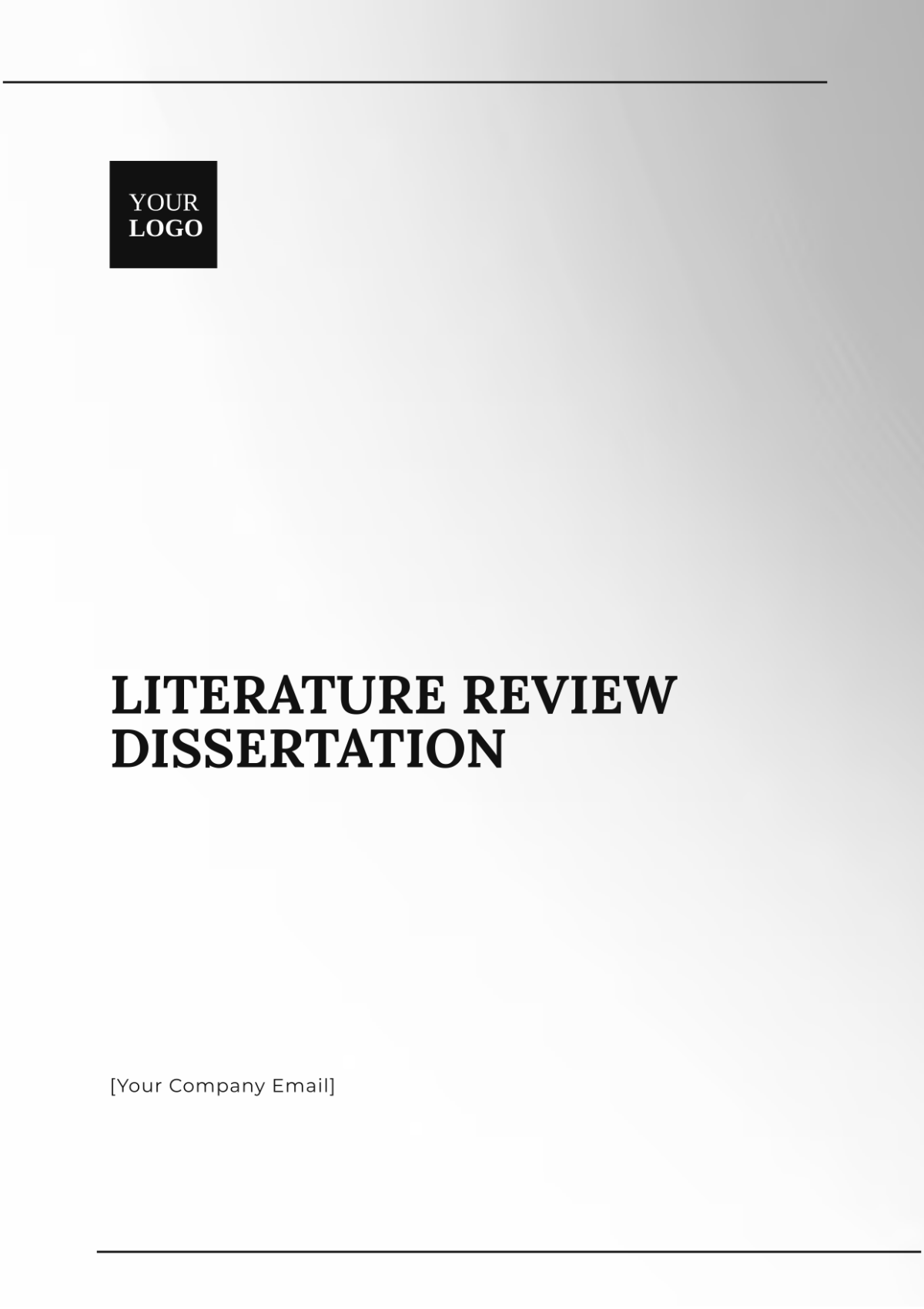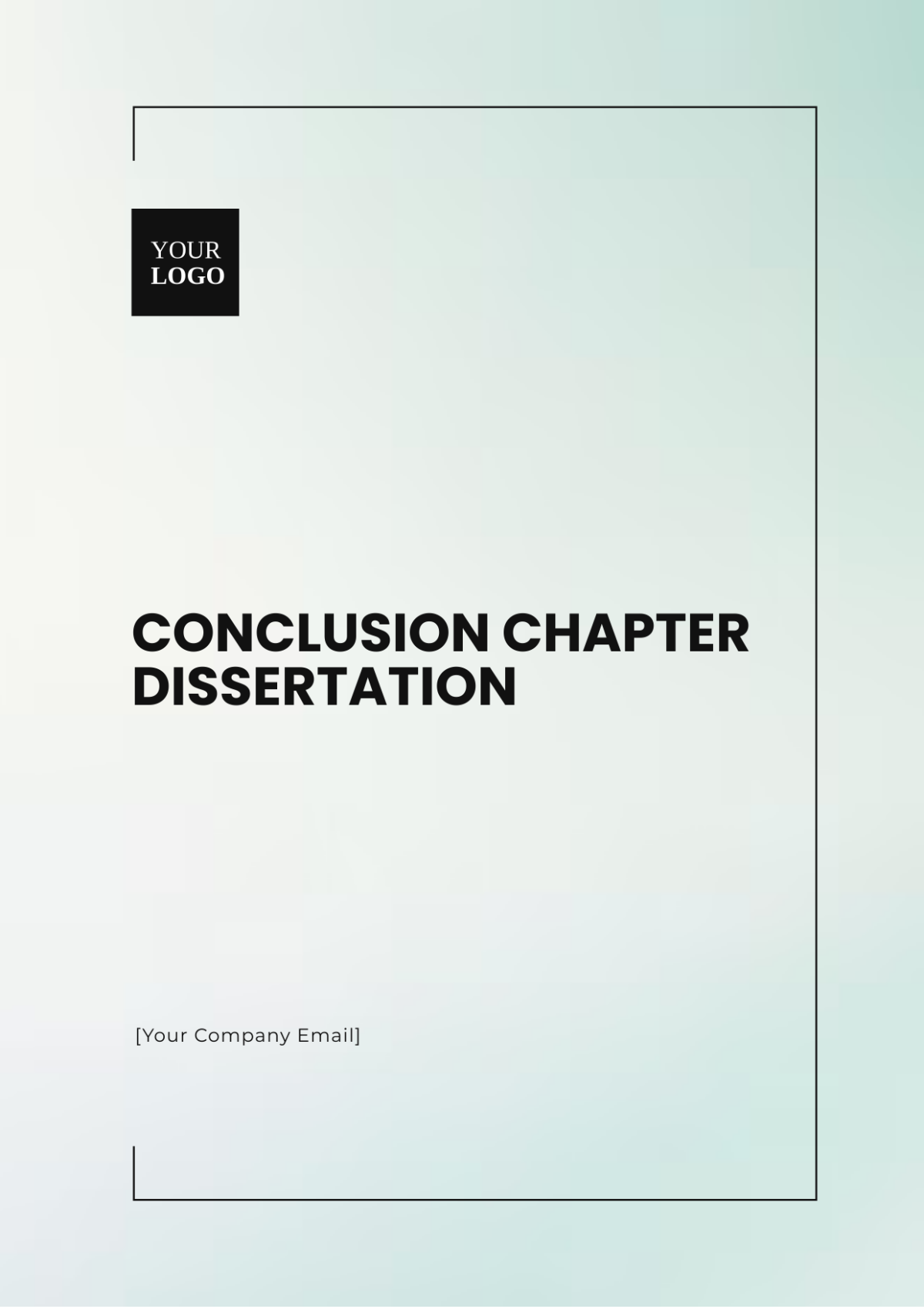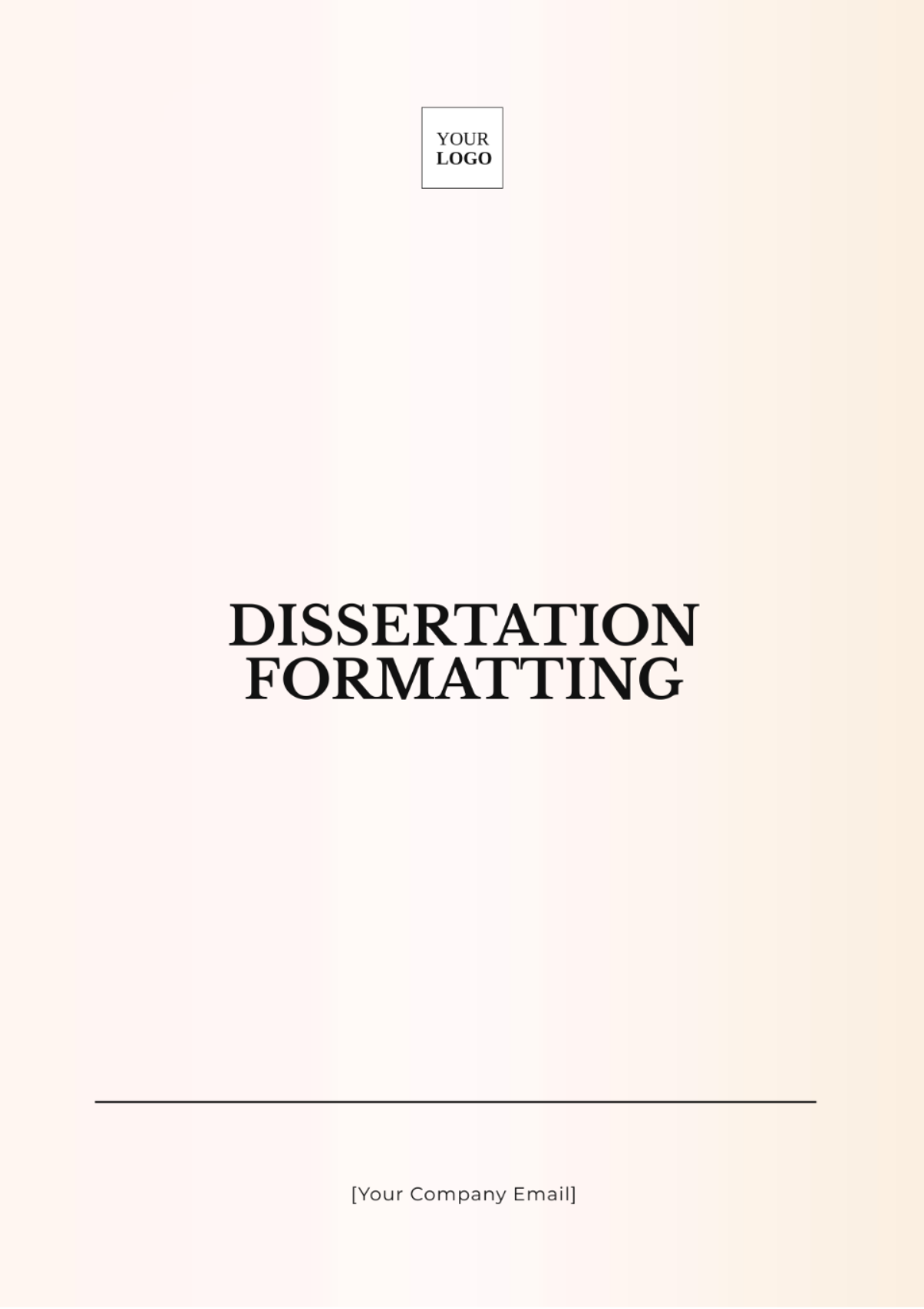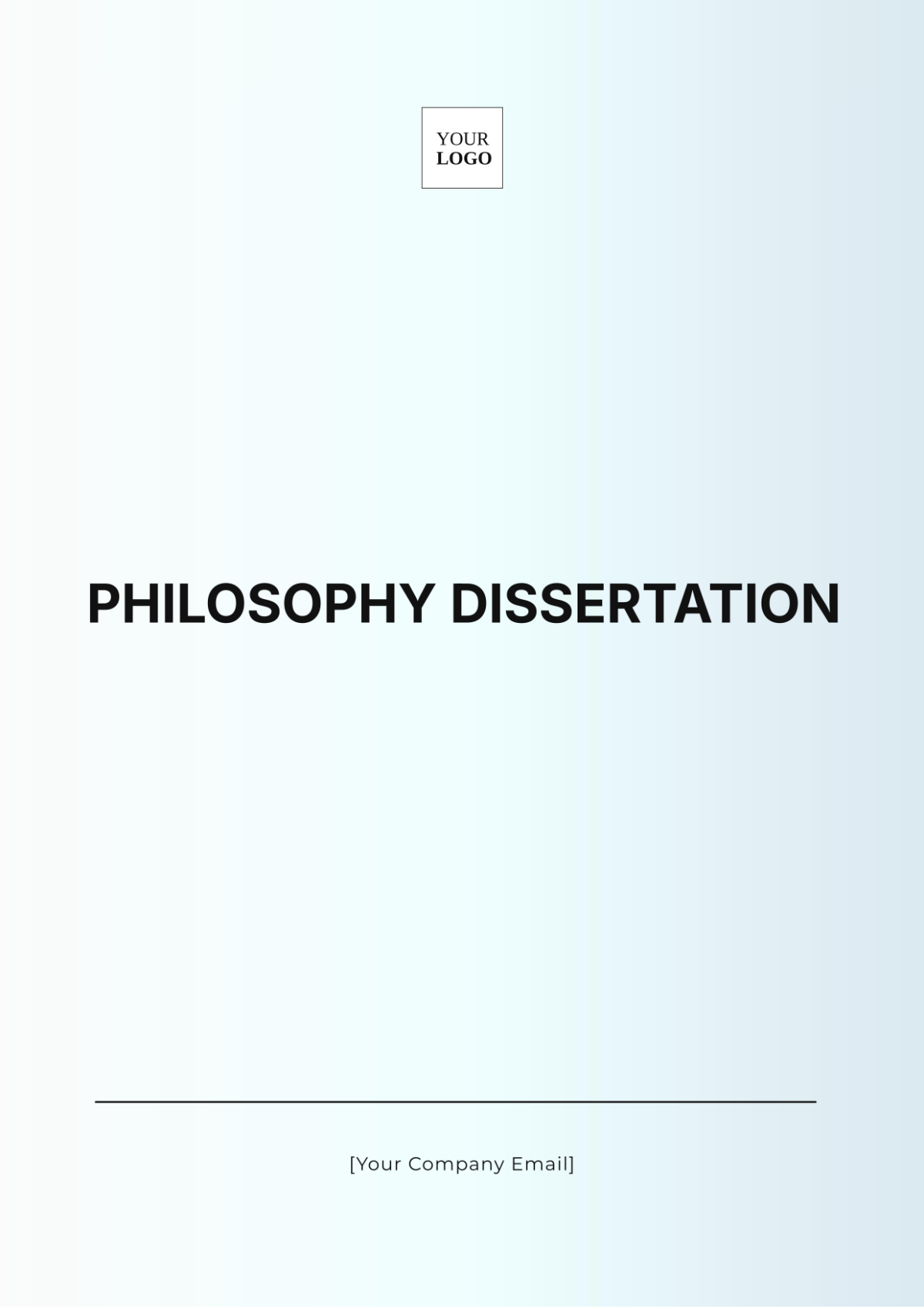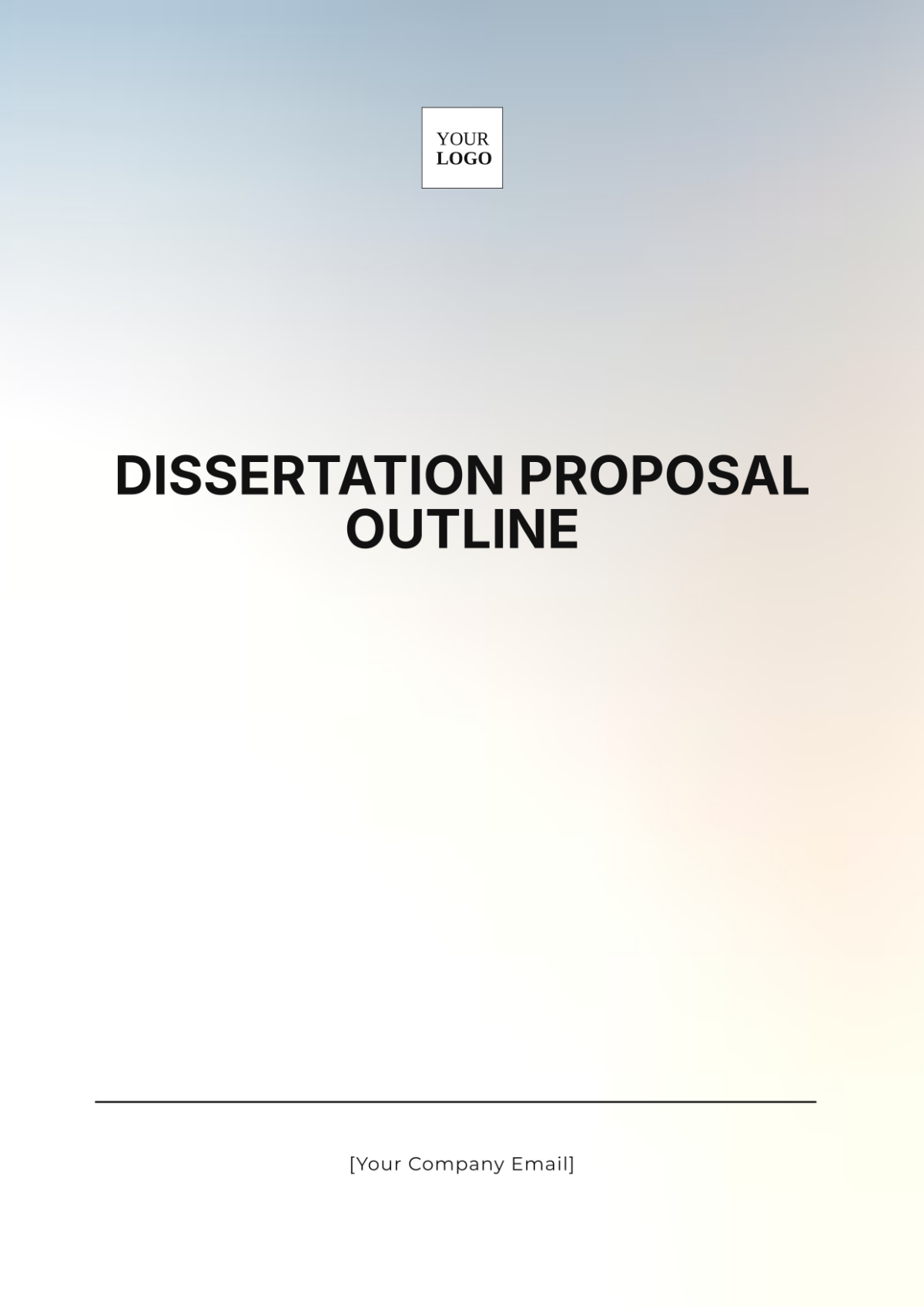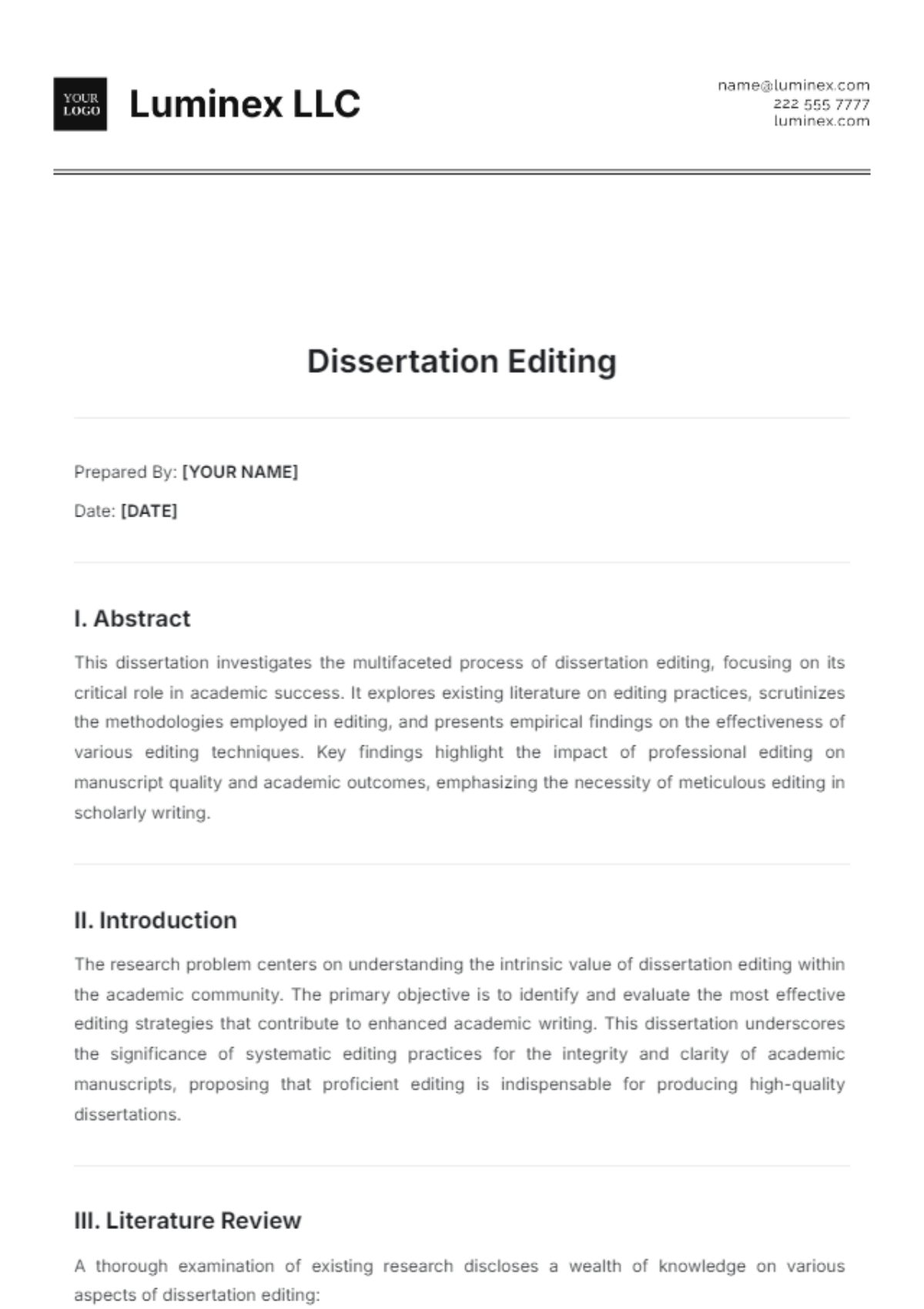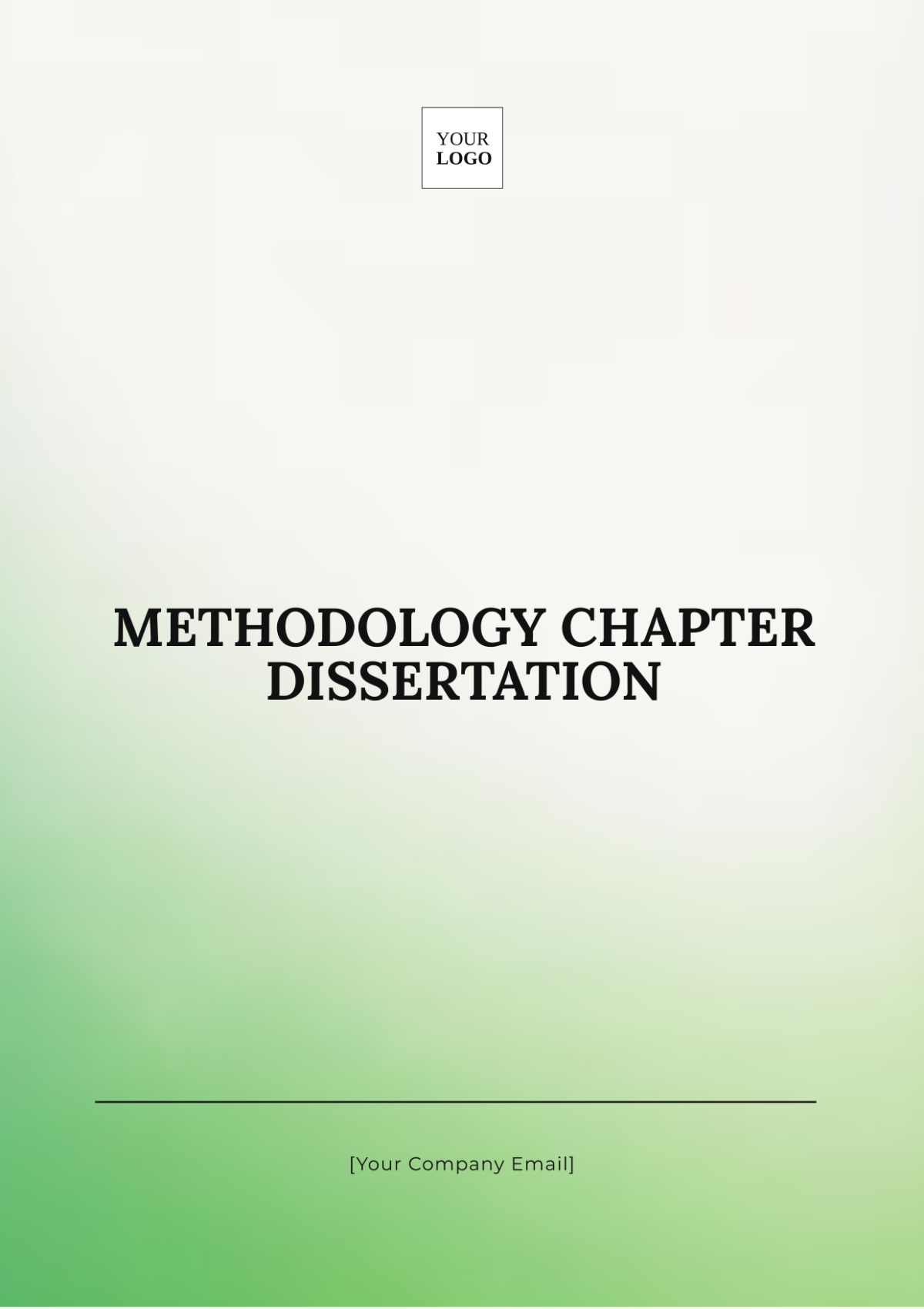Free Comparative Politics Dissertation Template
Comparative Politics Dissertation
Prepared By: Princess Joy Paras
Date: [DATE]
I. Introduction
The purpose of this dissertation is to examine the comparative political systems of selected countries to understand the intricate dynamics at play within different governance environments. This study aims to address the overarching research question: How do varying political frameworks influence policy outcomes and governance efficiency in different countries?
Objectives
To carry out an in-depth study that explores and explains the unique structural differences and features of various political systems.
To determine how much these differences impact policy-making and the general governance of a specific organization or country.
To evaluate the effectiveness of different political systems in creating responsive and responsible governance.
This research is significant as it provides insights that can contribute to the development of better governance models that are both efficient and responsive to the needs of the populace.
II. Literature Review
The literature review will cover existing research and theoretical frameworks pertinent to comparative politics. Notable theories such as Institutionalism, Rational Choice Theory, and Political Culture Theory will be discussed.
Institutionalism: Institutionalism focuses on the structure, functions, and processes of institutions. It examines how institutions shape the behavior of political actors and the outcomes of political processes.
Rational Choice Theory: Rational Choice Theory posits that individuals make political decisions based on a rational calculation of their benefits. This theory explains voting behavior, party strategies, and coalition-building.
Political Culture Theory: Political Culture Theory looks at how cultural values, beliefs, and norms influence political behavior and institutions. It emphasizes the role of historical and social factors in shaping political life.
III. Methodology
This section outlines the research design, data collection methods, and analytical approach used in this dissertation. A mixed-methods approach incorporating qualitative and quantitative techniques will be employed.
A. Research Design
The study utilizes a comparative analysis design to thoroughly examine and evaluate various political systems. This particular design has been selected with the specific intention of enabling a comprehensive and detailed comparative assessment, allowing for a more nuanced understanding of the differences and similarities among the political systems under investigation.
B. Data Collection Methods
Secondary data sources include peer-reviewed articles, academic journal research, government reports, and statistical databases.
Primary data sources include various methods like interviewing political analysis experts, conducting surveys to collect both quantitative and qualitative data, and gathering comprehensive information from individual case studies.
C. Analytical Approach
Data will be analyzed using both qualitative content analysis and quantitative statistical methods. Comparative metrics such as governance effectiveness, policy outcomes, and public satisfaction will be evaluated.
IV. Case Studies/Comparative Analysis
This section will present detailed case studies and comparative analyses of selected countries. The countries chosen for this study are Country A, Country B, and Country C, representing different political frameworks.
Country | Political Structure | Policy Outcomes | Governance Effectiveness |
|---|---|---|---|
Country A: Parliamentary System | Parliamentary Democracy | High Social Welfare | Medium |
Country B: Presidential System | Presidential Republic | Robust Economic Growth | High |
Country C: Hybrid System | Semi- Presidential | Balanced Development | Medium-High |
V. Findings
The findings reveal important differences in policy outcomes and governance effectiveness among the selected countries. Key insights include:
Countries with parliamentary systems tend to have higher social welfare policies but may struggle with governance effectiveness due to frequent government changes.
Presidential systems show robust economic growth and high governance effectiveness but may encounter challenges related to power concentration.
Hybrid systems often achieve balanced development, combining the strengths of both parliamentary and presidential systems, though they face complexity in political management.
VI. Discussion
The findings are interpreted in the context of the research question and existing literature. The study confirms theories related to institutionalism, demonstrating how different structures influence political and policy outcomes. Additionally, Rational Choice Theory is observed in the decision-making processes within various systems.
By utilizing a comparative framework, we were able to deepen our understanding of how political culture and historical context influence the development of governmental structures and the effectiveness of various policies. This approach facilitated a more detailed and layered analysis, enabling us to appreciate the complex interplay between these factors and their impact on governance.
VII. Conclusion
This dissertation provides a comprehensive analysis of how different political systems impact policy outcomes and governance efficiency. The study contributes to the field of comparative politics by highlighting the strengths and weaknesses of diverse political frameworks and suggesting pathways for enhancing governance models.
In future research, scholars should integrate longitudinal studies that track the same variables over long durations to observe temporal changes and growth, while also expanding their examination to encompass a diverse array of political systems for a more thorough and inclusive analysis; this approach would enrich the comparative study and provide a deeper, more nuanced insight into the investigated phenomena.
VIII. References
Blondel, J. (2059). An Introduction to Comparative Politics. Cambridge University Press.
Lijphart, A. (2059). Patterns of Democracy: Government Forms and Performance in Thirty-six Countries. Yale University Press.
North, D. C. (2050). Institutions, Institutional Change, and Economic Performance. Cambridge University Press.
O'Donnell, G. (2054). Delegative Democracy. Journal of Democracy, 5(1), 55-69.
Powell, G. B. (2050). Elections as Instruments of Democracy: Majoritarian and Proportional Visions. Yale University Press.







